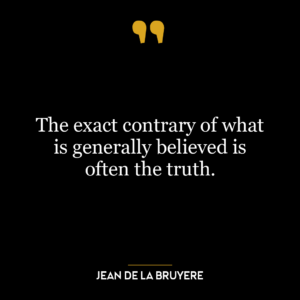This quote suggests that the most effective way to deceive or confuse your opponents is by telling them the truth. This is because people often expect deception or manipulation from their adversaries, so when they are presented with the truth, they may second-guess its authenticity or overthink its implications. The truth becomes a form of misdirection, leading the adversaries to question their own assumptions and strategies.
This idea is derived from the concept of reverse psychology, where you encourage a certain behavior by advocating for its opposite. In this case, by telling the truth when deception is expected, you create doubt and uncertainty, which can disrupt your adversaries’ plans or judgments.
In today’s world, this strategy can be seen in politics, business negotiations, or even in personal relationships. For example, in politics, a candidate might openly admit their weaknesses or past mistakes during a campaign. This unexpected honesty can throw off their opponents, who have likely prepared for denial or deflection, and may even win over voters who appreciate the transparency.
In terms of personal development, this quote can be interpreted as a reminder of the power of honesty. By being truthful, even when it’s hard or when others expect us to lie, we can maintain our integrity and potentially gain an advantage. It encourages us to challenge the common assumption that success requires deception or manipulation. Instead, it suggests that truthfulness can be a powerful tool in navigating our personal and professional lives.
However, it’s important to note that using truth as a strategy should not justify dishonest intentions. The goal should not be to deceive others, but rather to promote transparency and trust.





